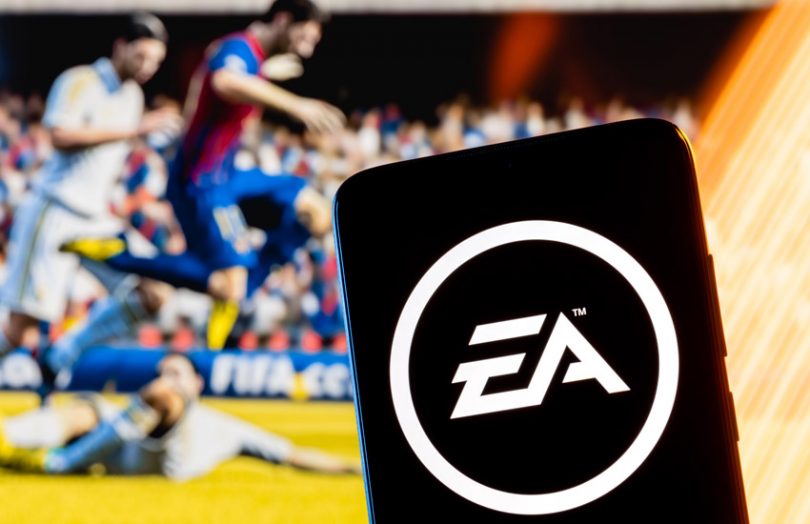During the last month, games company Electronic Arts (EA) published multiple job postings that mention blockchain and non-fungible tokens (NFTs). Step back a minute and consider that you can already buy players in EA Sports’ numerous games. Those could be NFTs. That’s before you even think about creative possibilities.
The job ads are for several Senior Director and software roles, including one in the Strategic Growth department, which covers subscriptions, competitions, marketplaces, and “new business opportunities like fantasy sports, blockchain and NFTs, and more.” The developer roles are “for products leveraging machine learning, blockchain.”
Compared to its smaller competitor, Ubisoft, EA is a late joiner to the blockchain party. But of all the games firms, EA has the largest sports footprint, with a breathtaking array of licenses. These include FIFA, NFL, NBA, NHL, NCAA, Formula One, and the country soccer leagues for England, Germany and Spain. In the last year, 140 million players engaged with EA Sports games, and EA as a whole has 16 million monthly subscriptions, according to one of the job ads.
In the year to 31 March 2021, the company made $5.6 billion in revenues, of which 71% came from live services. An undisclosed but significant proportion is from sports, highlighting the potential for sports-based non-fungible tokens (NFTs). The games company says its most popular extra content is the Ultimate Team mode for sports that yielded net revenues of $1.6 billion in 2021 – 29% of total revenues – of which a big chunk came from FIFA Ultimate Team. Ultimate Team enables players to collect current and former players to build and compete as a personalized team.
Meanwhile, Ubisoft has been exploring NFTs for a few years. In 2019 fantasy football NFT platform Sorare first joined the Ubisoft Entrepreneur Labs and did so again in 2020. The games company launched a blockchain fantasy football game for the Belgian league earlier this year, added five more blockchain firms to its Entrepreneur Labs and even signed up as a ‘corporate baker’ for the Tezos blockchain, which is also French.
Not everyone shares the enthusiasm
However, some other games firms are considerably less enthusiastic about the topic. There’s no question that there’s a lot of hype at the moment, and in many cases, inflated prices. But hype and a fad are not the same things. Gartner called the evolution of new products ‘the hype cycle’ for a reason.
However, Take Two CEO Strauss Zelnick implied it may be a fad. In the latest earnings call he said, “The problem I have is that if you take metaverse, SPACs and cryptocurrency, put them all together, in five years will any of this matter? I’m not sure it will.”
And the business site Gamesindustry.biz shares his view and doesn’t run stories on the topic of NFTs unless it involves an incumbent like Ubisoft. In March, it published an editorial highlighting why.
“What we haven’t seen is a compelling argument that any of these treatments will contribute anything to the industry beyond a new way for people to throw money into speculative pursuits,” wrote Managing Editor Brendan Sinclair. “Game publishers can already create in-game marketplaces to transfer player items.”
He continued, “And when it comes to the games themselves, any notion of players having actual ownership of these items is illusory.” That’s a fair point and one that applies to NFTs across the board.
Sinclair was particularly concerned about the wasteful use of energy, which is a very valid issue. However, NBA Top Shot does not run on a proof of work blockchain. Many – but not all – sports offerings running on proof of work Ethereum use side chains that use a fraction of the energy. And we hear that sports franchises demand this.
His other concern, which is also valid, is that cryptocurrencies encourage gambling-like behavior.
What about play-to-earn?
There’s no question that greed is a primal driver. And earning valuable items could make games more sticky.
On that point, Decentraland and Axie Infinity are two popular blockchain games. Decentraland has 90,000 land parcels which are all NFTs and hence these are all tradeable.
In “play-to-earn” games, users can win digital items which can also be sold. Coca Cola is participating in Decentraland, creating Coke-branded wearable items, including a jacket.
Both games look more than a little frothy. Axie Infinity’s cryptocurrency market capitalization is $4.1 billion after it debuted at $8 million in November 2020. Decentraland’s market cap is $1.2 billion.
It’s claimed that play-to-earn games provide a way of making a living in third-world countries. An organization that lends characters to players, Yield Guild Games, recently received $4.6 million in funding, including from Andreessen Horowitz (a16z). It says it enables unemployed people in the Philippines and beyond to earn a living playing games.






